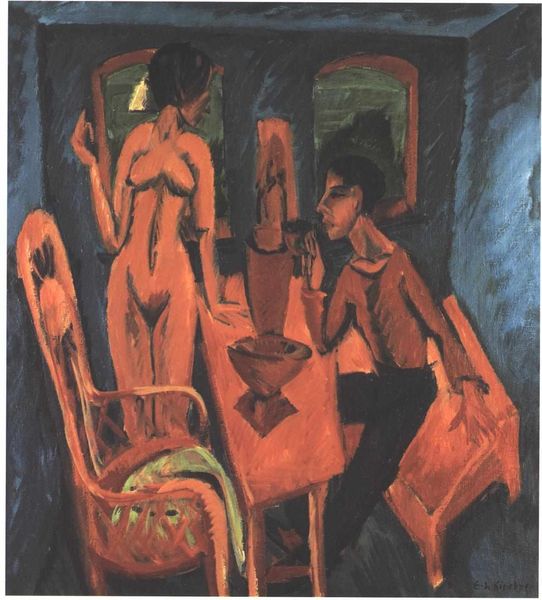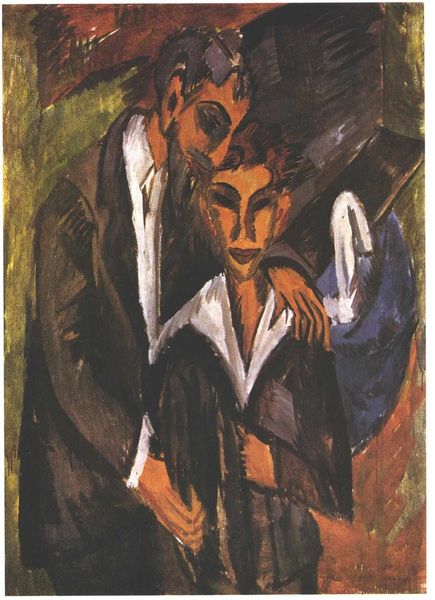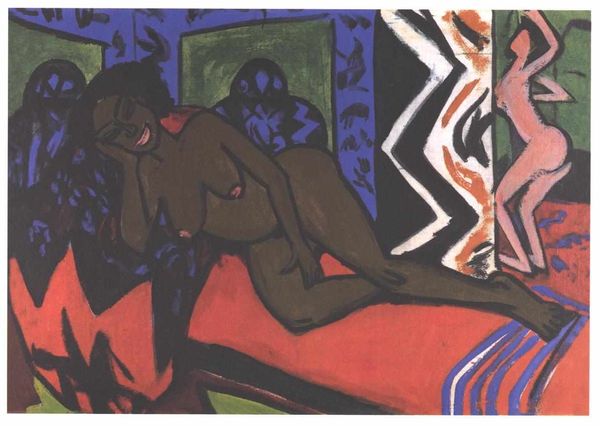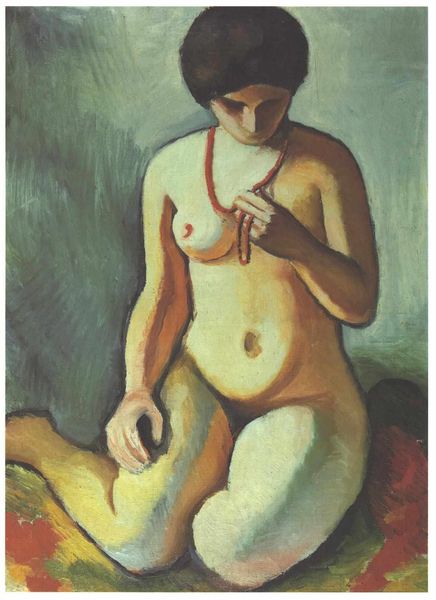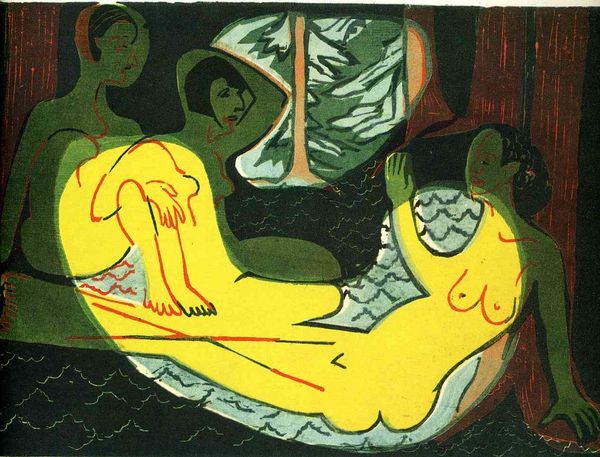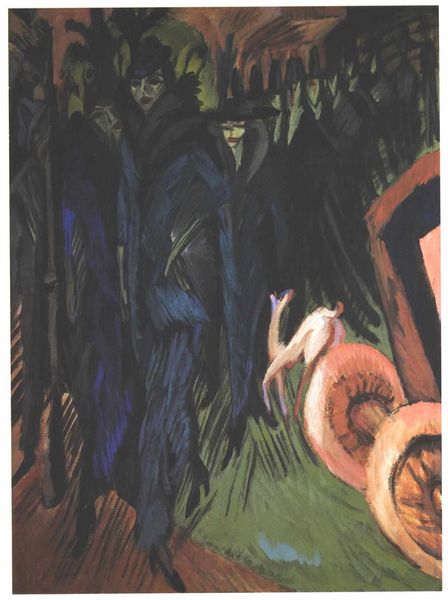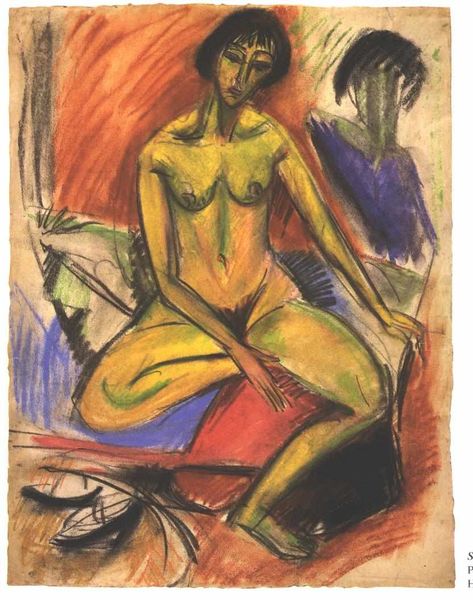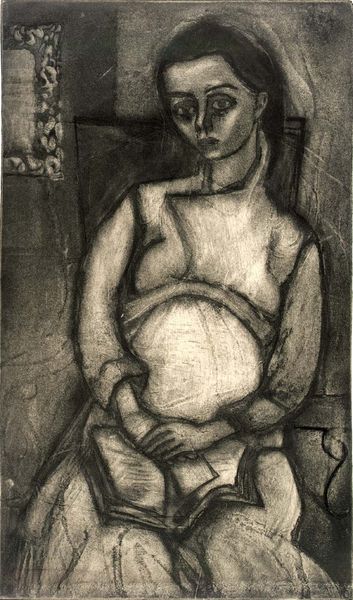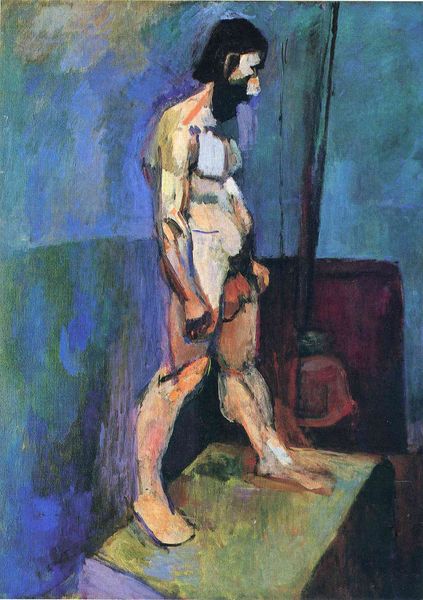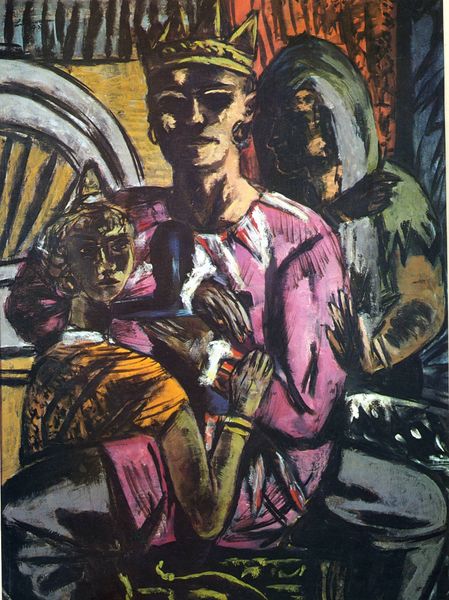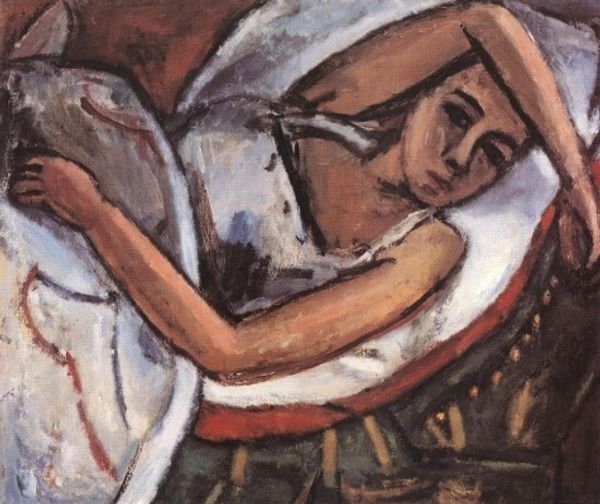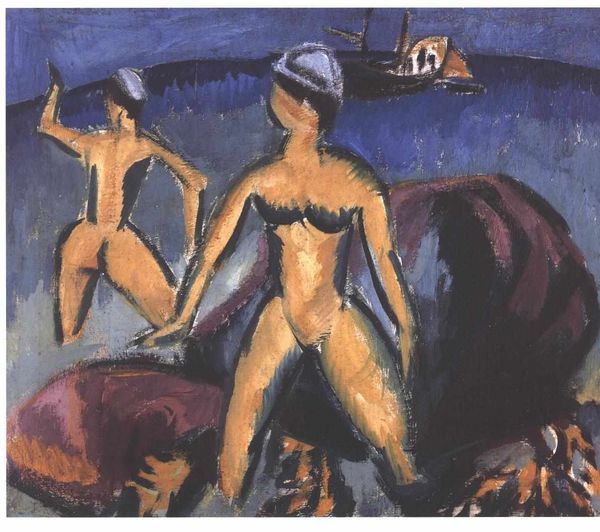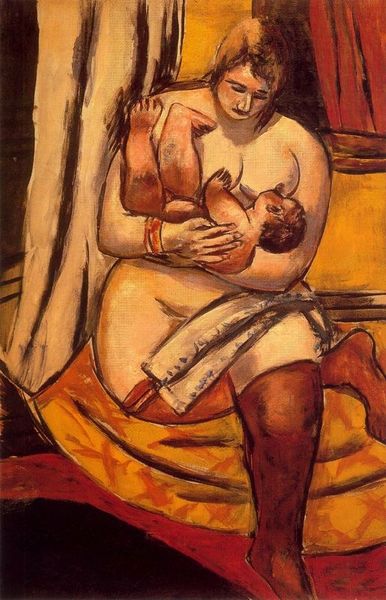
painting, oil-paint
#
portrait
#
self-portrait
#
painting
#
oil-paint
#
oil painting
#
expressionism
#
nude
#
portrait art
Copyright: Public domain
Curator: Ernst Ludwig Kirchner’s "Woman before the Mirror," an oil on canvas completed in 1912, is a striking example of early Expressionism. What captures your eye first about it? Editor: It's undeniably raw and intense. The clashing colors, the almost grotesque angles – it feels like the artist is conveying inner turmoil, not just outer appearance. There is an uncomfortable feeling as you observe this painting. Curator: Absolutely. Kirchner was deeply involved in the cultural shifts of his time. The Expressionists often sought to depict emotion over realistic representation, reacting against the industrialization and alienation they witnessed. It's relevant that many, including Kirchner, were experiencing increasing anxieties within pre-war German society. Editor: This vulnerability portrayed feels radical. We see this figure presented partially nude, but not necessarily sexualized. Instead, we see fatigue and perhaps anxiety. How much was Kirchner grappling with his own psychological landscape in these early self-portraits, you think? Curator: A great deal, I suspect. The distorted features and unnerving palette speak to psychological tension. We know Kirchner suffered bouts of depression and mental instability throughout his life. Furthermore, the Expressionist movement openly embraced the exploration of taboo subjects, challenging bourgeois norms through radical artistic freedom. This all has political consequences in its historical moment. Editor: Right, it's impossible to disconnect the work from the prevailing atmosphere of anxiety, from rapid social changes, from the stifling expectations of the era. Is the mirror just a reflection here, or does it have more resonance to understand the image? Curator: The mirror adds layers of complexity. The reflection is distorted. So is this not just a commentary on vanity, but on how society's expectations warp one's self-perception? Editor: Precisely. We see not just the individual but the psychological burden of navigating an era of turmoil and constraint. "Woman before the Mirror" speaks to anyone grappling with identity in a chaotic world. Curator: Indeed, and to understand it fully we need to confront our understanding of art’s role in bearing witness to—and participating in—social transformation. Editor: Thank you. This helps consider further layers to my first impressions on this powerful work.
Comments
No comments
Be the first to comment and join the conversation on the ultimate creative platform.
